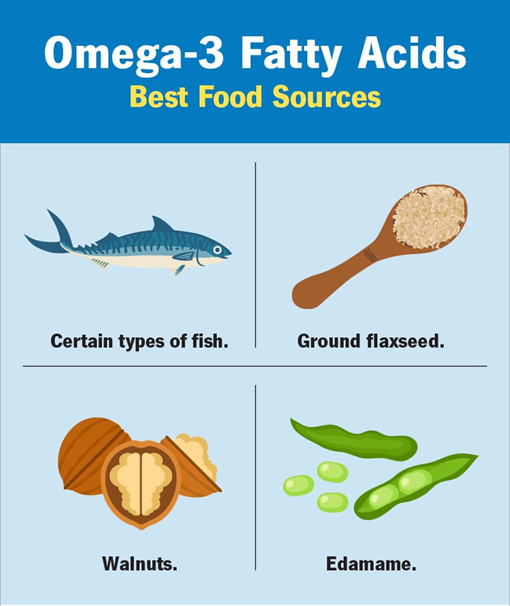A nurse is reinforcing teaching with a client who has coronary artery disease and is to begin a low-fat diet. Which of the following statements by the client indicates an understanding of the teaching?
"I will eliminate egg whites from my diet."
"I will use coconut oil when preparing food."
"I will eat fish three times a week."
"I will include 2 percent milk in my diet."
The Correct Answer is C
Choice A reason: Eliminating egg whites from the diet is not necessary, as they are a good source of protein and do not contain any fat or cholesterol. The client should limit or avoid egg yolks, which are high in cholesterol and saturated fat.
Choice B reason: Using coconut oil when preparing food is not advisable, as it is a source of saturated fat that can raise blood cholesterol levels and increase the risk of atherosclerosis and heart disease. The client should use unsaturated fats, such as olive oil or canola oil, which can lower blood cholesterol levels and improve heart health.
Choice C reason: Eating fish three times a week is a good practice, as fish are rich in omega-3 fatty acids that can reduce inflammation, lower blood pressure, and prevent blood clots that can cause heart attacks or strokes. The client should choose oily fish, such as salmon, tuna, or mackerel, which have higher amounts of omega-3 fatty acids.

Choice D reason: Including 2 percent milk in the diet is not recommended, as it contains more fat and calories than skim or 1 percent milk. The client should choose low-fat or fat-free dairy products, such as yogurt, cheese, or milk, which can provide calcium and protein without excess fat.
Nursing Test Bank
Naxlex Comprehensive Predictor Exams
Related Questions
Correct Answer is B
Explanation
Choice A: This is incorrect. The nurse should don clean gloves before removing the dressing, and then change to sterile gloves before applying the new dressing.
Choice B: This is correct. The nurse should offer the client pain medication before the procedure, as changing a dressing for a stage III pressure ulcer can be very painful.
Choice C: This is incorrect. The nurse should prepare the sterile dressing supplies just before the dressing change, not 30 min before, to prevent contamination.
Choice D: This is incorrect. The nurse should not disinfect the wound bed with alcohol, as this can damage the healthy tissue and delay healing. The nurse should use a saline solution or an antiseptic solution as prescribed.
Correct Answer is B
Explanation
Choice A reason: Nonpalpable area of redness, less than 5 mm (0.2 in) in diameter is a negative result for the tuberculin skin test, which means that the client does not have tuberculosis infection or exposure.
Choice B reason: Palpable area of induration, greater than 10 mm (0.4 in) in diameter is a positive result for the tuberculin skin test, which means that the client has tuberculosis infection or exposure and needs further testing, such as chest x-ray or sputum culture, to confirm the diagnosis and rule out active disease.
Choice C reason: Area of ecchymosis, greater than 12 mm (0.5 in) in diameter is not a relevant finding for the tuberculin skin test, as it indicates bruising or bleeding under the skin that may be caused by trauma or coagulation disorder.
Choice D reason: Tenderness at the injection site is not a relevant finding for the tuberculin skin test, as it indicates inflammation or irritation of the skin that may be caused by needle insertion or allergic reaction.
Whether you are a student looking to ace your exams or a practicing nurse seeking to enhance your expertise , our nursing education contents will empower you with the confidence and competence to make a difference in the lives of patients and become a respected leader in the healthcare field.
Visit Naxlex, invest in your future and unlock endless possibilities with our unparalleled nursing education contents today
Report Wrong Answer on the Current Question
Do you disagree with the answer? If yes, what is your expected answer? Explain.
Kindly be descriptive with the issue you are facing.
